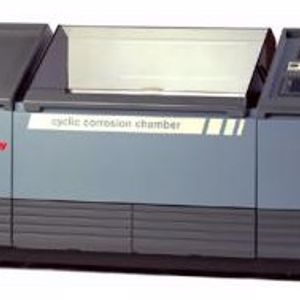What a CASS Test Is and Why It’s Needed
Be it in aeronautics, the automotive industry, shipbuilding or a host of other professions outside of transportation, aluminum alloys are regularly leveraged in machinery, equipment, infrastructure and more. Cost-effective and lightweight, aluminum alloys are widely used for commercial, industrial and consumer purposes. They’re also particularly effective at withstanding the harsh effects of weather and any resulting corrosion.
Yet while this metal and its alloying elements (such as nickel) is quite resistant to corrosion, they aren’t impervious to it. But with CASS testing, you can assess just how resilient aluminum alloys are to corrosion before putting them to use.
What is a CASS test? How is CASS testing performed? We’ll explore the answers to these questions and more here.
What is a CASS test?
Short for Copper Accelerated Acetic Acid Salt Spray, a CASS test is a highly reliable method that evaluates how well a given aluminum alloy holds up in a moisture-rich environment. With a few rare exceptions (such as palladium, gold, silver and platinum), virtually all metals wind up corroding when they’re exposed to wetness and humidity. So it isn’t a matter if corrosion will occur, but when. Thus, this type of corrosion testing — which is formally known as ASTM B368 — helps to determine when that may happen and what applications or coating(s) are necessary to delay that inevitability. Here is a brief list of some of the aluminum alloys that are assessed for corrosion resistance:
- Alnico
- Birmabright
- Duralumin
- Hindalium
- Magnalium
- Titanal
- Silumin
- Nambe
- Magnox
What each of these share in common is they’re mostly aluminum. Alnico, duralumin and titanal also contain copper.
In addition to aluminum alloys, a CASS test also assesses the corrosion resistance of chromium plating. Chromium plating is often found on steel and zinc die castings, which are used for both functional as well as decorative applications, and found in metals like copper, nickel and chromium.
How is a CASS test performed?
Because corrosion testing is highly regulated and is relied upon as being an effective objective assessment tool, there are very strict procedures the test must abide by. For example, CASS testing adheres to the ASTM B117 standard for the salt solution. This means the solution has a 95 to 5 water-to-salt ratio by weight, or 95 parts water to five parts salt. Once this is established, a reagent of grade copper chloride is added to the solution for dehydrating purposes. From there, the solution is mixed and atomized before it’s placed in the testing chamber. The chamber itself is kept at a constant temperature of 120 degrees Fahrenheit, the equivalent of 49 degrees Celsius, so the solution can be properly atomized. After the appropriate amount of time goes by – which can vary depending upon the test subject – the salt fog that emanates from the ASTM B117 solution is collected, tested and adjusted to a pH level of between 3.1 and 3.3 by adding glacial acetic acid that is reagent grade.
As far as the duration goes, a CASS test can run anywhere from a day (24 hours) to weeks at a time, upwards of 80 days or more.
While a CASS test has many practical uses, since it can provide clarity on the corrosion resistance of aluminum alloys and chromium plating, the test results may also be used for research and development purposes to identify which anodic coatings will be most effective in deterring corrosion and to determine the best electroplating processes for industries that specialize in this area.
The CASS test is one of many that Auto Technology performs. Whether it’s the ASTM G85 and ASTM B117 for salt or GMW 3172 and GMW 14872 for cyclic testing, Auto Technology is your all-in-one environmental and corrosion testing headquarters.
Contact us today to learn more about our processes and our testing chambers, which are ready to lease or rent for cyclic corrosion, salt fog, humidity and more. Quality assurance is guaranteed.


